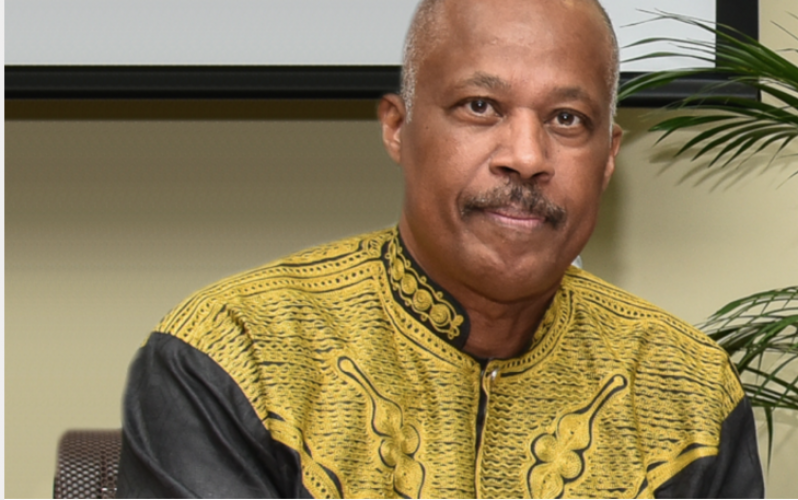(Barbados Today) MANY of the world’s leading universities were established using money generated via the slave trade and, as such, should get more involved in the reparations process. That view was shared by Vice Chancellor of The University of the West Indies (UWI), Professor Sir Hilary Beckles, as he addressed the fourth annual celebration of the UNESCO Day for Remembering the Atlantic Slave Trade and its Abolition, put on by the Mayor of London’s office in the United Kingdom.
Speaking during the session, which for the second year was partially held online due to the COVID-19 pandemic, Sir Hilary said: “While some universities, such as the University of London, have been doing more research into the history of the slave trade, they seem to have adopted a ‘research and run’ policy, whereby they do not acknowledge the fact that slave traders financed them in the first place. “They have not checked out how they have benefited from the slave trade over the years, and, to my mind, a university cannot be excellent if it is unethical. Instead of ‘research and run’, they should have a ‘research and restore’ or ‘research and repay’ approach.”
The noted historian commended British benefactor, Bridget Freeman, whose ancestors were slave owners in the Caribbean, for making a substantial donation to The UWI recently.
The UK philanthropist has bequeathed her properties worth US$500,000 (BDS$1 million) to the regional university.
“It is good to see members of civil society and some private individuals making an effort, even though governments continue to refuse to acknowledge their role in the slave trade,” he said. Earlier, Sir Hilary stated that London was the most fitting place to hold such an event, since that city, more than any other in the world, “gave direction, shape, form and sustainability” to slavery and the slave trade. He added that it was also important to see that the Mayor of London’s office was involved in the activity, since, for many years, it supported the work of the slave traders and indeed built monuments to them.
Citing an example, Sir Hilary noted: “Following the 1816 Bussa rebellion in Barbados, Colonel Codd, the British military officer that put an end to that revolt, killing thousands of enslaved Africans in the process, was the guest of honour at a banquet hosted by the Mayor of London, funded by the city as well as the biggest slave owner in the Caribbean who had plantations in Barbados, Jamaica and other colonies.”
The current Mayor of London, Sadiq Khan, who spoke before Sir Hilary, said the reality of slavery was still very much present in modern society.
He noted: “While we must never forget the oppression and tyranny imposed on the slaves and their battle for freedom, history can also be a source of hope. After all, we put an end to the Middle Passage and the apartheid system of racial segregation in South Africa, so if we continue to raise our voices instead of staying silent, and fight for what is right, we can achieve a fairer, more equal and just society for our children, regardless of their colour.”
In her contribution, Director General of Social and Human Sciences with UNESCO, Gabriela Ramos, said her organisation was making a determined effort to stamp out institutionalised racism. “We are developing an anti-racism road map, and part of this process includes doing greater research on the history of slavery as well as the psychological impact on people descended from slaves. Part of this will involve developing a school curriculum highlighting Africa’s great contribution to the world and removing stereotypical images,” she said.




.png)









